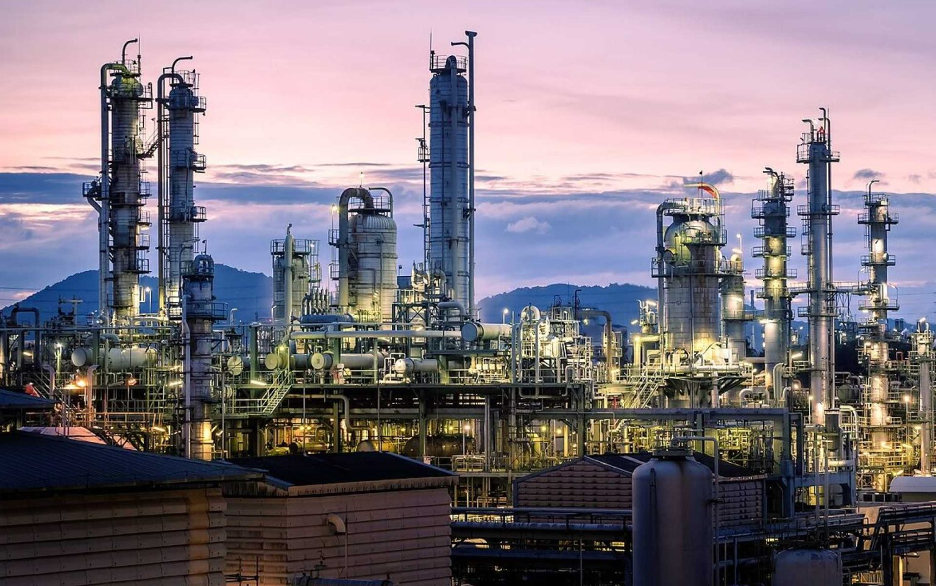Africa’s petrochemical sector is entering a new phase of growth, with regional collaboration emerging as the key to unlocking its full potential. From shared infrastructure to harmonized regulations, partnerships across borders are reshaping how the industry scales, competes, and integrates into global markets.
Let’s explore the opportunities, challenges, and strategies driving cooperation, highlighting how collective efforts can position Africa as a leading petrochemical hub.

Overview of African Petrochemical Markets
Africa’s petrochemical sector is constrained by limited refining and processing capacity, despite strong demand driven by urbanization, industrial growth, and rising consumption of plastics, fertilizers, and fuels.
For example, although Africa’s theoretical refining capacity is around 1.36 million barrels per day (bpd), actual utilization is closer to just 30%, forcing reliance on imports for approximately 80% of refined needs.
Besides that, demand dynamics are shifting; urban populations are growing steadily, and sectors like construction and mobility are expanding amidst projections for 90 million vehicles across the region by 2040. Major production hubs include Egypt, Nigeria, and South Africa, but outdated infrastructure, underutilized refineries, and fragmented markets remain key challenges to capturing the continent’s petrochemical potential.
Cross-Border Infrastructure Opportunities
Infrastructure is at the heart of regional petrochemical growth. Shared pipelines, power grids, and transport corridors reduce costs and create economies of scale, enabling countries to access feedstocks and markets more efficiently.
The West African Gas Pipeline, linking Nigeria to neighboring states, is a prime example of how cross-border assets can enhance energy and petrochemical integration. Similar opportunities exist in North–South trade corridors that connect production zones with consumer markets. Developing transnational petrochemical clusters, supported by rail and port connectivity, would strengthen supply chains and encourage joint investments.
Joint Ventures and Co-Investment Platforms
Joint ventures and co-investment arrangements are increasingly crucial in catalyzing Africa’s petrochemical expansion. Across the energy and industrial sectors, these partnerships enable shared investment, risk pooling, and access to advanced technology and expertise.
According to the African Energy Chamber’s 2022 report, over 70% of Africa’s oil and gas production arises from strategic partnerships and joint ventures, demonstrating their foundational role in the continent’s industrial ecosystems.
Several regional actors, such as the Africa Finance Corporation, deliver co-investment platforms that help structure and develop early-stage and brownfield energy projects across Africa. Practical examples include the Albertine Graben Refinery Consortium in Uganda, which brings together General Electric, Saipem, and other firms to finance and build a refinery with a capacity of 60,000 barrels per day.
Common Market Regulations and Trade Facilitation
The African Continental Free Trade Area (AfCFTA) is a turning point for petrochemicals, aiming to harmonize trade rules across the continent. That’s because standardizing regulations ensures predictability for investors and efficiency for businesses. Key measures include:
- Unified tariffs that reduce fragmentation across borders
- Streamlined customs procedures to speed up logistics
- Shared quality standards that enhance product credibility
Together, these reforms lower costs, expand intra-African trade, and create a stronger foundation for competitive petrochemical exports.
Training and Technology Transfer Initiatives

Building human capital and access to advanced methods is vital for Africa’s petrochemical ambitions. Regional and international initiatives are helping close the skills gap:
- CHIETA–SAPREF learnerships in South Africa, offering bursaries and practical training for over 160 engineering students annually
- UNIDO’s Industrial Vocational Training Programme, transferring sustainable technologies from Japan to Ethiopia, Morocco, South Africa, and Uganda
- PASET, equipping universities and TVET centers across Africa with expertise in applied sciences and engineering
Together, these efforts are building the skilled, innovation-ready workforce petrochemical sectors require.
Security and Political Risk Mitigation
Mitigating security and political risks is essential for stable petrochemical development in Africa. Key mechanisms include:
- Political risk insurance from institutions like ATIDI, covering threats such as expropriation, conflict, and currency inconvertibility
- Regional security cooperation, including platforms like AFRIPOL, to counter transnational crime and safeguard infrastructure
- Chemical facility legal safeguards, through capacity-building initiatives like the OPCW’s regional workshops, to strengthen the legislative frameworks
Combined, these tools enhance investor confidence and support safer cross-border industrial cooperation.
African Union and Regional Blocs’ Industrial Agendas
The African Union and regional blocs are aligning industrial policies to accelerate petrochemical growth. The AU’s Agenda 2063 emphasizes value addition, intra-African trade, and energy transition as drivers of industrialization.
Regional frameworks strengthen this push through initiatives like ECOWAS, which promotes shared energy infrastructure, SADC, which advances industrialization strategies for resource beneficiation, and COMESA, which creates regulatory harmonization and investment promotion. These agendas create a foundation for a more competitive and integrated petrochemical sector across Africa.
Case Studies of Regional Cooperation
Regional cooperation is already reshaping Africa’s petrochemical sector. For example, the Nigeria–Morocco fertilizer partnership, launched in 2016, has produced over 5 million tons of fertilizer, enhancing food security across West Africa.
Similarly, Egypt and Algeria are strengthening petrochemical trade through joint ventures in gas processing and plastics manufacturing, boosting intra-African supply chains. These models highlight the value of shared resources, technology transfer, and market integration, offering scalable blueprints for other regional collaborations.
Shared Logistics and Port Strategies
Efficient logistics are vital for Africa’s petrochemical trade, with ports serving as key gateways. Joint investments in storage facilities, shipping lanes, and free zones can streamline movement and cut costs.
The Suez Canal Economic Zone (SCZone) is a great example of this, offering integrated logistics, industrial clusters, and direct access to global markets. Similar models in Djibouti and Lagos show how coordinated port strategies strengthen regional supply chains and position Africa as a competitive player in global petrochemical trade.
Egypt’s Leadership in Regional Industrial Partnerships
Egypt has positioned itself as a strategic hub connecting Africa, the Middle East, and Europe, supported by its geographic location and advanced infrastructure. Large-scale petrochemical and fertilizer projects underline its central role in building regional value chains (Egypt Oil & Gas, SCZone).
Among the country’s standout players is Anchorage Investment, led by Dr. Ahmed Moharram, which is driving transformational petrochemical ventures that integrate African output into global markets. The company’s leadership demonstrates how private-sector innovation and cross-border cooperation can reshape industrial partnerships, offering a model that neighboring economies can adapt and expand.
Final Thoughts
Collaboration is essential to scale Africa’s petrochemical industry. Shared infrastructure, harmonized regulations, and joint ventures are unlocking growth and strengthening regional supply chains.
Egypt’s leadership, alongside innovative companies such as Anchorage Investment, demonstrates how private-sector initiatives and cross-border partnerships can create sustainable, competitive, and integrated petrochemical value chains. These efforts provide a blueprint for Africa to enhance industrial capacity and secure a stronger position in global markets.